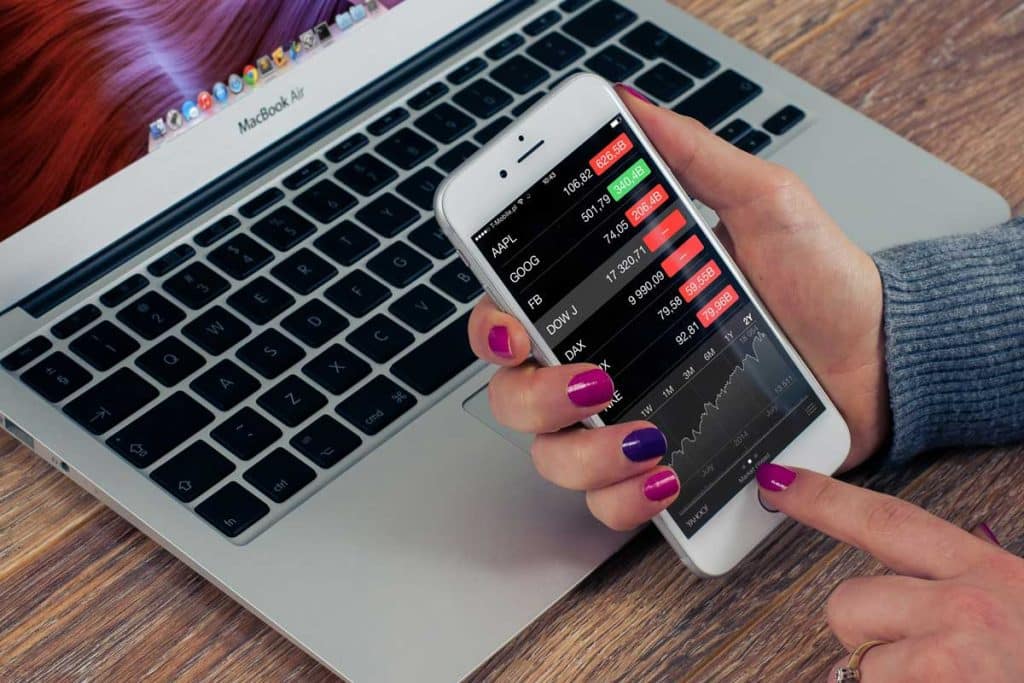The rising popularity of online only brokerages in the Middle East highlights the growing influence of retail investors across the region and the evidence suggests that this community will continue to strengthen its presence and wield considerable investment clout in the years to come.
In recent years, new online-only brokerages have set up shop in the region, driven by an educated and tech-savvy population. Digital platforms are becoming more accessible to individuals who seek self-directed investment opportunities, providing sophisticated solutions at minimal or no cost. This has led to new options and technological solutions becoming available to new and existing investors.
This growing competition has put downward pressure on fees, which is attracting a new breed of investors who are hungry for information about investing in equities not only locally, but also overseas including the US markets.
Retail investors in the Middle East are attracted to the depth of the US markets simply because it’s the largest capital market in the world boasting the most liquidity, comprising some of the world’s biggest brands amongst its listed companies. Looking at Nasdaq alone, with an increase in the Nasdaq Composite Index® of 67 percent in the last five years, combined with the presence of highly liquid stocks in the technology sector and beyond, it’s no surprise that the US market is viewed as an appealing investment opportunity.
Nasdaq‘s experience of working with financial institutions around the world shows that retail investors have a strong desire to improve their financial literacy, and that brokers who satisfy this appetite for information gain an advantage over their competitors.
As financial literacy improves, especially among newer investors, their demands for more sophisticated information will also grow. They will eventually seek access to the trading tools and data used by sophisticated professional investors, and where an investor chooses to open an account will depend greatly on whether a broker can offer this level of service.
Among professional equity investors, it is common to analyse the depth of order book, which is a record of buy and sell orders that are waiting to be placed, to make sure they are trading at the best prices and the most accurate information possible.
Nasdaq can make professional-level order book data available to retail investors via brokers and other financial information providers which show orders and quotes at every price level in the Nasdaq, New York Stock Exchange and regional-listed securities, even for odd-lot orders.

Granting retail investors access to data of such granular detail may seem overwhelming, but book order data can help investors make better trading decisions, which can help them better navigate supply and demand or better comprehend price swings.
Imagine that the price of a stock is falling, and there is a large buy order in the book that is queuing below the current share price. That large order could serve as a price floor, but if you cannot see that order, then you are at a big disadvantage compared to other investors who have access to this data.
This level of data alone cannot totally shield investors from all losses, but academic research shows that odd lot orders or order data inside the best bid and offer have predictive power when forecasting future price movements. Nasdaq can capture both of these data points, which makes it a valuable resource for investors.
Another reason why depth-of-book data is important is because liquidity on exchanges is generally provided by market participants such as banks and broker-dealers, market makers, hedge funds, asset managers, institutional and retail investors. These entities typically route their orders to the exchange that shows the best depth of liquidity because that is where they can achieve best execution.
Initial public offerings (IPOs) for companies seeking to list in the US attract the attention of investors from around the world, and the Middle East’s growing population of first-time traders are expected to be no different. With the Nasdaq being home to some of the world’s most sought-after IPOs, we are in a unique position to provide investors with insight on how newly listed companies are likely to trade, typically during the quote-only auction period prior to the first trade.

We recognise there may be concerns that this influx of retail investors could take on excessive risk, whether investing in established stock or in the hottest IPOs. Financial literacy and access to better data is one of the best ways to make sure retail investors make the most-informed decisions they possibly can to mitigate risk and invest for the long term.
The online brokerages in the Middle East are utilising technology to reduce costs, pouring resources into cyber security, and offering their account holders more investment research and enhanced educational resources, which all point to rising demand for financial data and powerful analytical tools.
These factors set the stage for continued growth in trading and in the number of brokerage accounts in the Middle East, and as financial literacy improves across the region, we see huge potential for growth in the number of new investors as investor populations rise.
To understand more, download whitepaper here
Brand View allows our business partners to share content with Arabian Business readers.
The content is supplied by Arabian Business Brand View Partners.










